5 Ways Vegetarianism Could Save the World
5 Buddhist Teachings and Teachers
Recommending a Vegetarian Lifestyle;
5 Reasons it’s the Ethical Thing
to Do
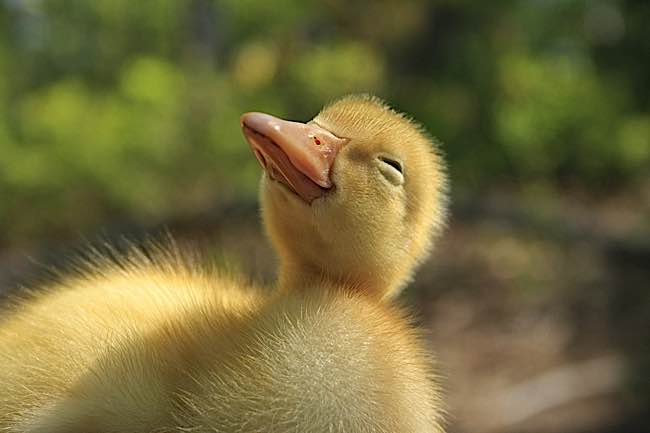
Not all Buddhists are vegetarians. Did the Buddha actually suggest a vegan lifestyle? And, putting aside Buddhists, why is the meat industry growing when the science says it’s hurting our planet? These are the questions that frame our special feature focusing on Vegetarianism: five ways it could save the world, five Buddhist teachings that recommended veganism, and five reasons it’s just the ethical thing to do. And, since not everyone reading this feature is a Buddhist, let’s start with the science.

Over 56 billion farmed animals are killed each year by humans — 10 billion land animals in the U.S. alone. 3,000 die each second. [5] This does not include countless fish. Billions of animals suffer and die painfully — animals who, according to scientists, are sentient and feel emotions. [4]. Put another way, each person who eats meat, is directly responsible for the lives of an average of 95 slaughtered animals each year. [5]
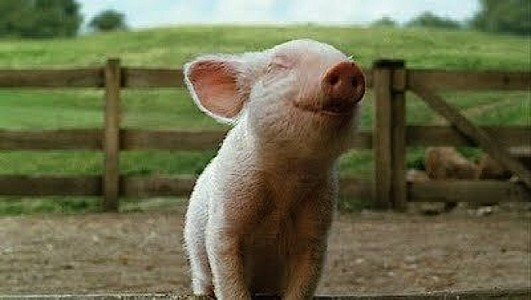
According to most
scientists, animals are sentient and feel emotions. Contrast this happy pig to
the unhappy pigs on a factory farm below.
The Scientific
Buddhist, 5 Ways Vegetarianism Could Save the Planet
- emissions — the meat industry is one of our largest polluters, more than all cars and planes put together [1]
- scarcity of land — 30% of the available ice-free surface area of the planet is now used by livestock, estimated to soon increase to 45%
- inability to feed our population: perhaps more urgent than the environment is our inability to currently feed the world’s population, in part due to the unbalanced allocation of land: meat production uses 23 times as much land as crop production.
- overuse of important resources such as water — and pollution of water.
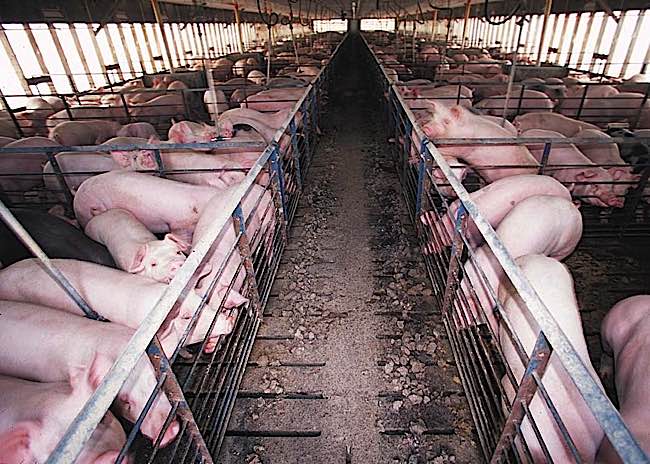
Demand for meat
around the world is growing, with over 56 billion animals slaughtered each
year, increasingly from factory farms who are major polluters.
If we’re serious about global warming and the environment, even modest reductions in dependence on meat will have a higher impact on the environment than things such as emissions controls on automobiles.
That restaurant steak on the plate could represent 9,000 liters of water, 40 kilograms of poop (waste), 4 kilograms of feed and more emissions pollution than a car might create on an hour-long drive to the restaurant.
Animals are Sentient and Feel Emotions say
Prominent Scientists
We challenged readers: “The advance in non-human rights begs the question, from a Mahayana Buddhist perspective, when we promise to liberate all sentient beings — or not to kill — just who do we include? If our definition includes all beings down to insects and octopuses, how do we reconcile our dependence on “lower” beings for survival?”

His Holiness the
Gwalwang Karmapa is a vegetarian and recommends the lifestyle to Mahayana
Buddhists.
The 17th Gyalwang Karmapa gives a very direct answer: “We say I am going to do everything I can to free sentient beings from suffering. We say I am going to do this. We make the commitment. We take the vow. Once we have taken this vow, if then, without thinking anything about it, we just go ahead and eat meat, then that is not okay. It is something that we need to think about very carefully.”[3] The Dalai Lama also strongly recommends vegetarianism.

We asked Buddhist teacher Theodore Tsaousidis, of the Grey Bruce Mindfulness Centre, to put this in perspective. He didn’t sugar coat his view:
“If you claim to be
a compassionate person or Buddhist in the 21st century and still eat meat,
there are possible elements of pathology, hypocrisy and ignorance that beg
reflection.”
But, before examining the ethics and Buddhist perspective, let’s start with five ways meat is damaging the environment and our world.
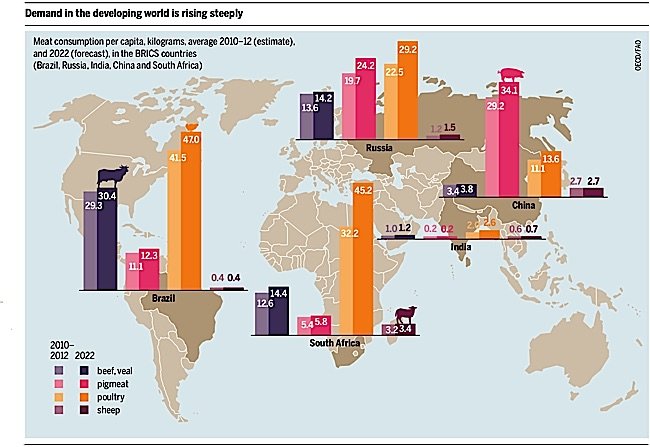
Meat consumption is
growing in developing nations. There won’t be enough land to support the
growth. It is estimated 45% of non-ice land in the world will be used for meat
production within a few years.
Just the Facts: Why
the Meat Industry is Damaging our Environment
There are some simple, largely indisputable, well-cited facts, that lead to the concept: “5 Ways Vegetarianism Can Save the Planet” story, only some of which we quote here (we recommend a read of the article of the same name in The Guardian>>)
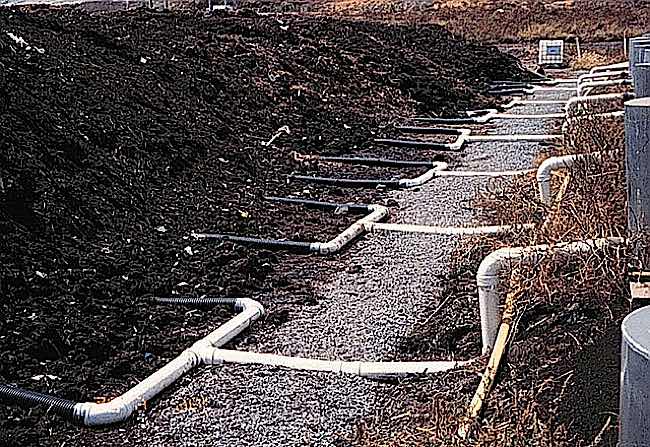
Factory pig farm producing
waste products. Unlike organic farms, large scale factory farms product more
pollution than a small human city.
Fact One — 18% of Global Climate Emissions are a result of meat production, more if you include supporting factors [1]
Factory farming is responsible for 37% of all methane emissions “which has 20 times the global warming potential of CO2.”[6]
“We humans eat about 230m tonnes of animals a year, twice as much as we did 30 years ago,” according to The Guardian newspaper. “We mostly breed four species – chickens, cows, sheep and pigs – all of which need vast amounts of food and water, emit methane and other greenhouse gases and produce mountains of physical waste… UN calculated that the climate change emissions of animals bred for their meat was… more than cars, planes and all other forms of transport put together.”
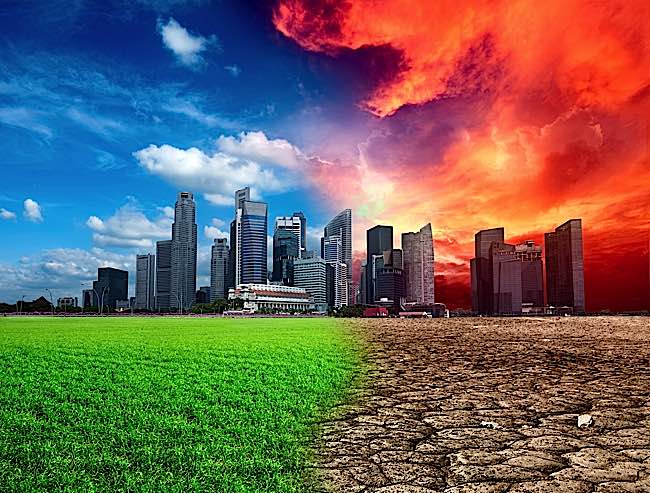
The meat industry is
currently the largest methane producer, and the biggest contributor to
pollution and global warming.
World Bank Scientists pegged the number at much higher, because they include extra considerations like clear-cutting oxygen producing forests to favor animal agriculture, fertilizers and many other factors, such as transport, bringing the total up to 51%.
In other words, if only 25% of the world’s population converted to vegetarianism, the impact on the environment would be staggering. That’s a fact, not even arguable (although certainly some will try. Which brings us to fact Two — the population is increasing.

Increasing wildfires
and turbulent weather are two of the consequences of global warming.
Fact Two — It takes 23X as much land to grow our vegetables as to raise meat livestock — not enough land to feed the expected increase in world populations.
Currently, according to facts cited in the Guardian feature: “Nearly 30% of the available ice-free surface area of the planet is now used by livestock, or for growing food for those animals. One billion people go hungry every day, but livestock now consumes the majority of the world’s crops.”
In other words, when the population grows by only 3 billion, we’ll need to consume another 15% — assuming demand per person doesn’t increase as nations grow richer—and we’ll have another 500 million starving humans. For livestock, 45% of land in the world — and unlikely possibility, even if we clear cut the few remaining forests (which leads us to the third fact — deforestation). Not all land is suitable for livestock. Of course, speaking facetiously, if the polar icecaps keep melting we may have more land for meat.
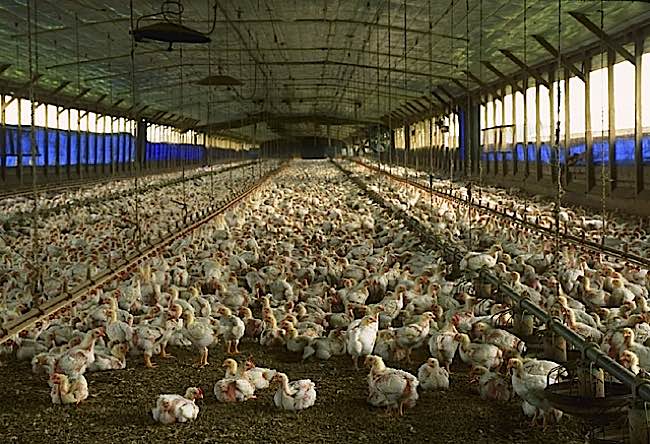
Factory farming
requires extensive land, water and natural resources.
Put another way, in the US. alone, 13m hectares of land are used to grow vegetables, while it takes nearly 23 times that much, 302m hectares for livestock. “The problem is that farm animals are inefficient converters of food to flesh,” writes the Guardian. For example, pigs need 8.4kg of feed to produce one kilogram of meat.
Fact Three — Millions of hectares of trees cut to produce burgers
Agriculture in general is causing deforestation, mostly for meat and a few crops such as palm oil and soya. Write the Guardian: “Millions of hectares of trees have been felled to provide burgers for the US and more recently animal feed for farms for Europe, China and Japan.” 6m hectares of forest land a year are lost (roughly twice the size of Belgium) with most converted to farmland. Putting aside the destruction of animal habitat there’s an enormous climate cost. The second largest crop to go on that clear-cut land is soybeans, mostly grown to feed the cattle.
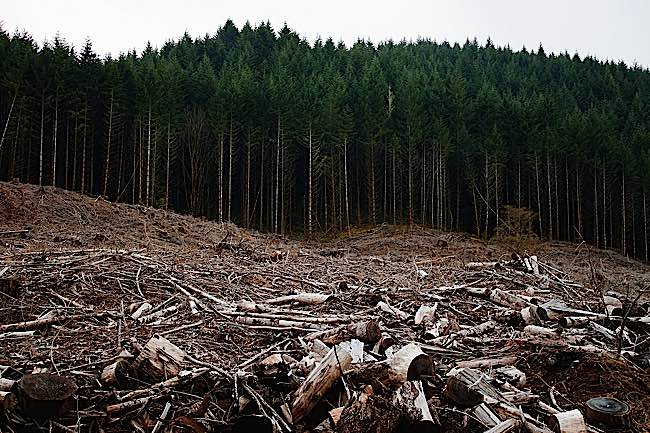
Clear cutting is
necessary to create more land for meat production. Currently, 36% of non-ice
land in the world is used in meat production, expected to grow to 45%.
Fact Four — A single cow farm can generate as much waste as a small city
The Guardian: ” Industrial-scale agriculture now dominates the western livestock and poultry industries, and a single farm can now generate as much waste as a city. A cow excretes around 40kg of manure for every kilogram of edible beef it puts on and when you have many thousands crowded into a small area the effect can be dramatic. Their manure and urine is funneled into massive waste lagoons sometimes holding as many as 40m gallons.”
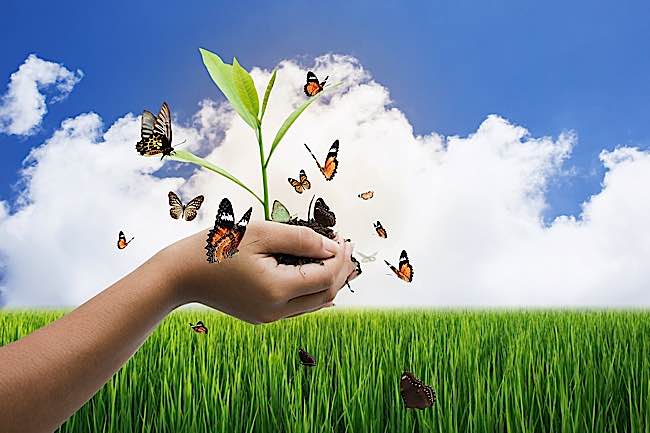
Using arable land for
crops versus meat production could have more impact on global warming than
emission controls on factories and cars.
The article goes on to present shocking pollution statistics, such as “most summers between 13,000 and 20,000 sq km of the sea at the mouth of the Mississippi becomes a “dead zone”, caused when vast quantities of excess nutrients from animal waste, factory farms, sewage, nitrogen compounds and fertilizer are swept down the might river.” There are nearly 400 dead zones that have been identified, largely due to animal farming.
Fact Five: Current meat animals drink too much: producing a pound of beef requires 9,0000 litres of water
It may not be a top of mind issue in North America, where water is somewhat plentiful, if polluted. But in most other parts of the world, water shortage and clean water is a serious, even life-threatening issue.
It requires approximately 9,000 litres of water (20,000 pounds) to produce one pound of beef, 1,000 litres to produce one litre of milk. A broiler chicken “only” consumes 1,500 litres. Pigs are the worst, with the largest pig farms consuming as much water as a normal-sized human city.
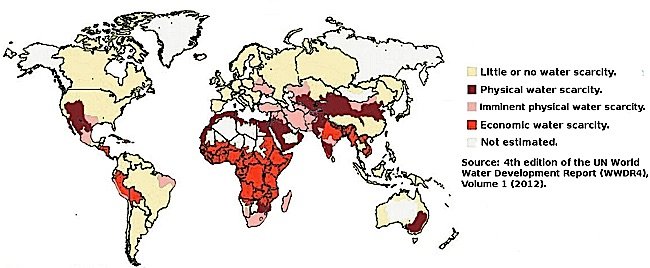
Indicated on map are
areas of the world with not enough water for survival. Meat production uses a
disproportionate amount of precious water resources and contributes to the
pollution of remaining water.
There is no doubt that farming consumes the majority of our water, 70% according to expert estimations, but this number could be dramatically reduced if we transitioned more food output to crops versus meat.
For instance, potatoes take between 60 and 229 pounds of water per pound of produce — as compared to 20,000 pounds of water for a pound of beef. [1]
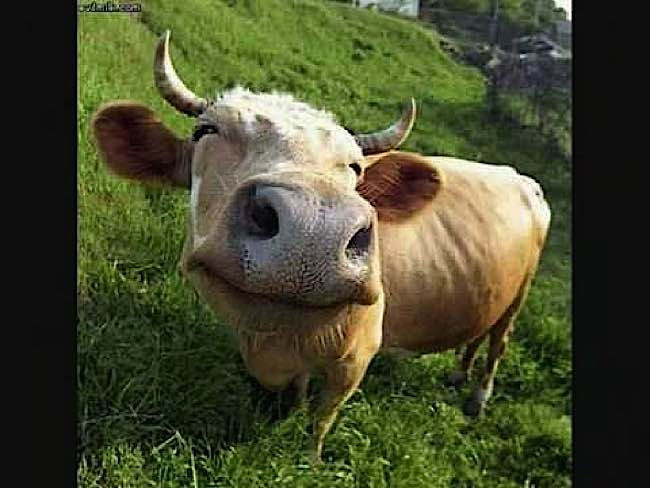
Cows feel emotions,
according to the majority of scientists. A glance at this happy cow reinforces
this fact.
Bottom Line — Meat a higher negative impact on the environment as compared to other major industries.
If we put aside ethical and Buddhist arguments, the meat industry is harmful to our collective help. Even a modest decrease in demand for meat can result in positive environmental returns. Significant decreases in demand could, literally, save our planet.
5 Buddhist Teachings and Teachers
Recommending Vegetarian Lifestyle

This
annual vegetarian festival in Thailand celebrates the good karma of a non-meat
lifestyle.
Earlier, we stated the strong position of Buddhist teacher Theodore Tsaousidis: “If you claim to be a compassionate person or Buddhist in the 21st century and still eat meat, there are possible elements of pathology, hypocrisy and ignorance that beg reflection.”
Is this harsh? Not if you consider the First Precept of the Buddha, “Abstain from Taking Life.” And not, as Mahayana Buddhists, when we vow to “benefit all sentient beings.” Practicing Mahayana Buddhists reinforce that vow and belief each day when we take refuge.
Theodore elaborated on his very strong position:
“If one keeps looking to the Buddha for direction as to whether it is permissible to kill and eat animals, then one doesn’t understand the aim of his teachings. If you, on a basic level, understand the fundamental technology and methodology of Buddhist’s teachings, then whether the question is simple or complex, it can be answered strictly by applying the method the Buddha expounded —which is to ask the question and experience the answer for oneself.
“To
do this, one must attend to one’s raw feeling. Without getting entangled in the
interpretation of various sources, we can just feel and attend to one question:
“Is my action inclusively wholesome, good, compassionate and freeing?”
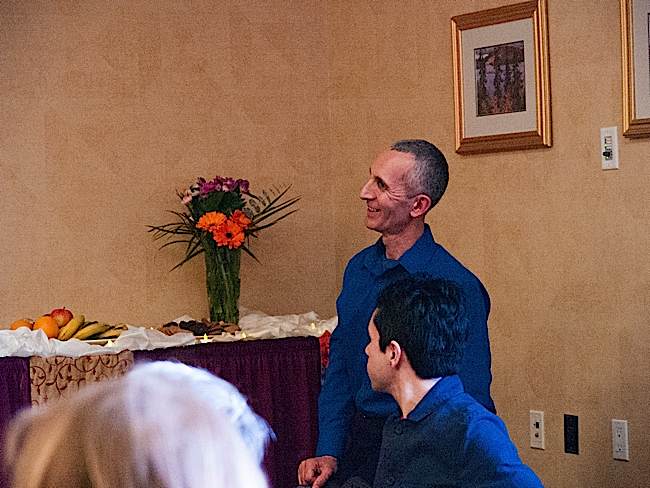
Theodore
Tsaousidis is a meditation teacher from Grey Bruce Mindfulness Centre, who
lectures regularly at Gaden Choling Toronto and a Medicine Buddha Toronto
events and retreats.
Science asserts that sentient beings include fish, birds and animals. Buddhism might be the middle way, but there is really not much middle ground for a Mahayana Buddhist with regards to eating meat. In Theravadan Buddhism, perhaps, there’s a little leeway, but the Mahayana Buddhist is above all compassionate and working for the benefit of sentient beings.
“If I didn’t ask the butcher to kill the animal, meat is okay, right?”
Generally, early Buddhist monks were instructed by Buddha to eat whatever is given to them. This could include meat, provided they were certain that the animal was not butchered for their benefit. Which, of course, is a wide loop hole, if you consider this to mean “it’s okay as long as I didn’t instruct them to butcher the meat.” However, most reasonable people understand that meat is only butchered due to our demand, so we are all involved in the decision.
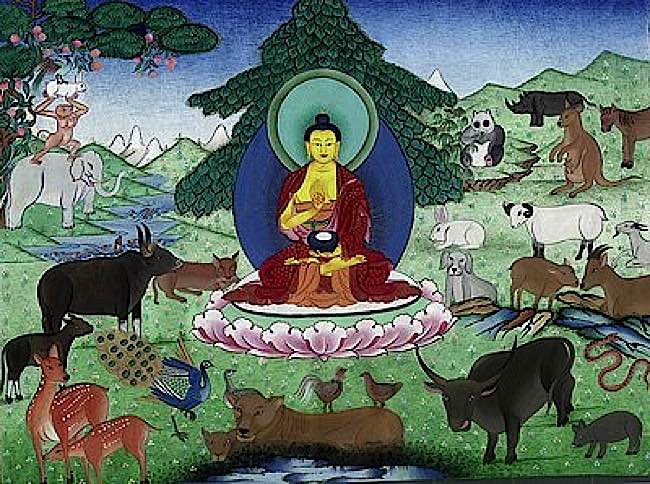
Buddha
taught the precept to “abstain from taking life.” This is defined as any
breathing life form.
Specifically, Buddha said, in early Theravadan sutras: “Monks, I allow you fish and meat that are quite pure in three respects: if they are not seen, heard or suspected to have been killed on purpose for a monk. But, you should not knowingly make use of meat killed on purpose for you.” In this case, Buddha is teaching that monks should not reject alms, and also it’s important not to waste meat that is already butchered. Generally, this is not interpreted to mean approval of the practice of eating meat itself.
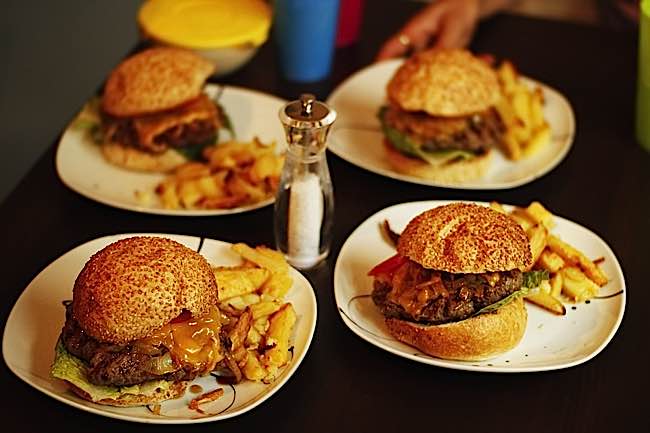
The
hamburger factor. Countless hectares of forest are cleared each year to support
the growing popularity of the hamburger.
Technically correct? No intention is a thin argument.
It came down to intention. If monks were given meat, they could eat it because they had no intention to do harm (it was given to them, not requested by them) — therefore there was no negative karma. That’s not saying there was no harm done, only that there is no specific ethical problem if there was no intention to harm. It’s a thin argument, perhaps, considering there is knowledge that harm was done, but it’s technically correct in terms of karma.
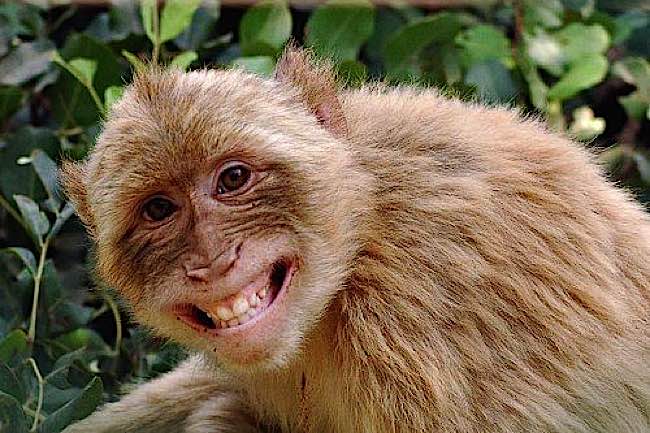
Animals feel emotions.
However, since most of us are lay practitioners, we more or less order or buy meat knowing it must be killed for our benefit. Therefore, our middle ground becomes one of — “I’m not ready to be a monk today, but sometime in the future…” If we really want to look the other way, we can also hide behind “no intention to cause harm” but it’s not an easy argument to make when we knowingly buy the meat.
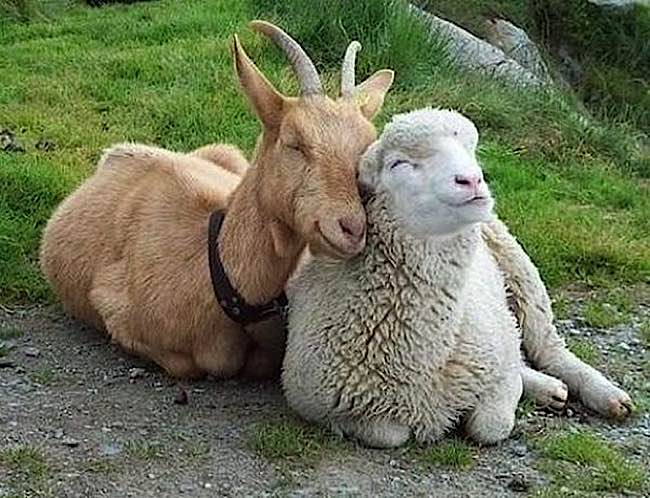
Sentient animals
around the world feel happiness, pain and suffering. Here are two happy friends.
Mahayana sutras, on the other hand, for the most part reject meat and emphasize compassion to all sentient beings — which we now know include non-human animals, birds and fish.
The Dalai Lama: “The best thing is to give up meat.”
In answer to the direct question, “Is it permissible for Buddhists to eat meat?” the Dalai Lama replied in November 2009:
“The best thing is to give up meat entirely. Sometimes one’s lifestyle and circumstances provide no alternative but to eat meat, and in these cases one should eat as little meat as possible. Tibetan monasteries and nunneries in south India became entirely vegetarian 15 years ago. Festivals and ceremonies in all Tibetan monasteries and nunneries should be completely vegetarian.” [3]
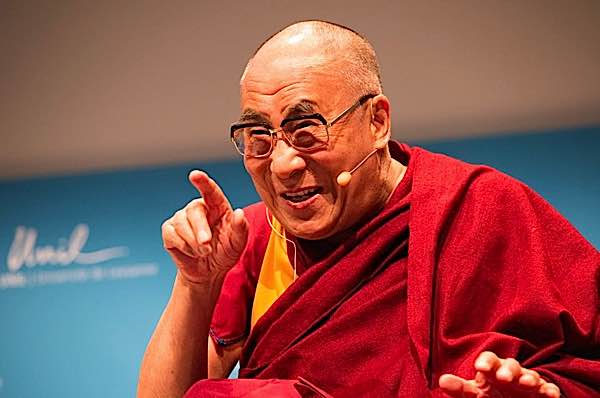
The Dalai Lama often
teaches the benefits of vegetarianism, or minimizing the consumption of
meat.
His Holiness 17th Gyalwang Karmapa: Doesn’t eat meat because “of the intense suffering that the animals”
The Gyalwang Karmapa, who is a vegetarian, gave two reasons why he suggests not eating meat (on the official website of the Karmapa): The first reason is the intense suffering that the animals who are killed go through. Every single day millions of animals are killed to feed us, and many are subjected to terrible conditions to provide us with food.”
The second reason is even more directly hard-hitting from a Mahayana Buddhist point of view:
“We say I am going to do everything I can to free sentient beings from suffering. We say I am going to do this. We make the commitment. We take the vow. Once we have taken this vow, if then, without thinking anything about it, we just go ahead and eat meat, then that is not okay. It is something that we need to think about very carefully.”
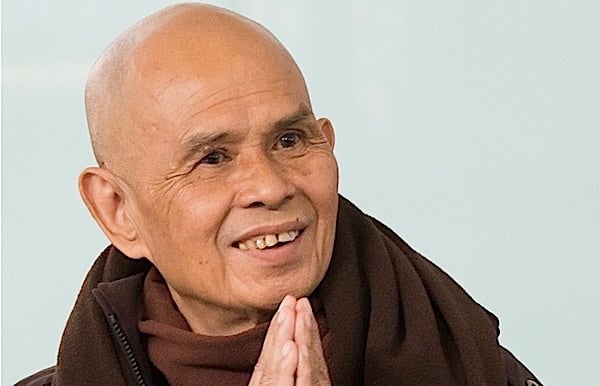
The most Venerable
Thich Nhat Hanh advocates not only vegetarianism, but activism.
What
five other notable Buddhist teachers say about eating meat
Here are a few snippets (there are thousands to choose from) from the great teachers:
- Bikkhu Bodhi: The first precept, to abstain from killing, includes the “taking of life of ay being with breath.”
- Zasep Tulku Rinpoche: “We must not hurt other people and animals.”
- Thich Nhat Hanh: “No killing can be justified…. We must also learn way to prevent others from killing.”
- Kyabje Chatral Sangye Dorje Rinpoche: “Meat, the sinful food.”
- Lama Zopa Rinpoche: ” As there are more and more people becoming vegetarian, that means less and less animals will be killed. So it is very important. In the world people eat meat mainly because of habit; so many people have not thought that the animals experience unbelievable suffering.” [4]
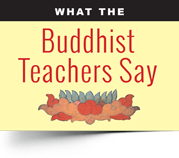
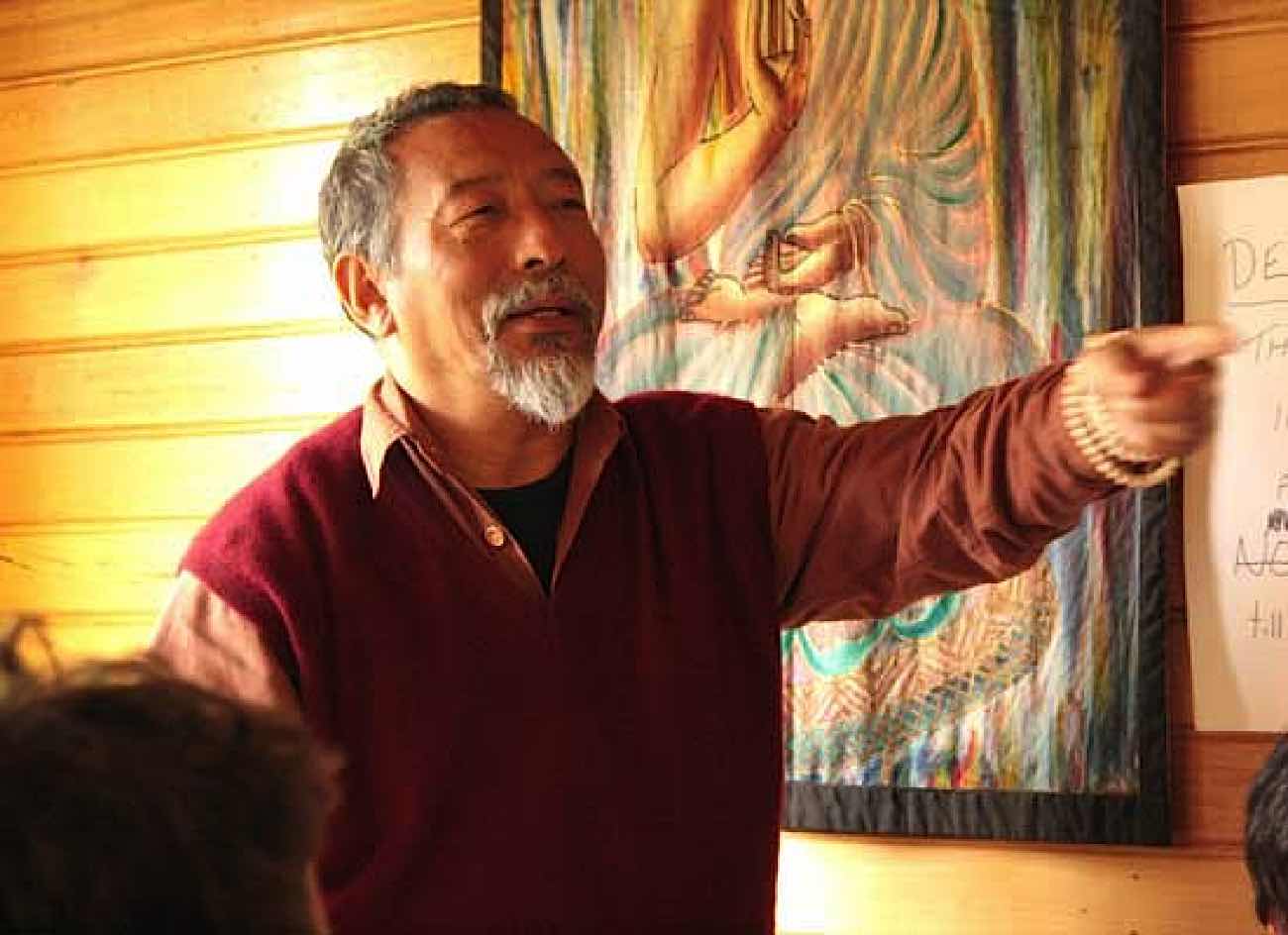
The most Venerable
Zasep Tulku Rinpoche teaches “we must not hurt other people and animals.”
5
reasons becoming a vegetarian is the ethical thing to do
Some might say we should have started here — with the ethics of meat. In general, most non-sadistic people understand animals suffer. Culturally, we are brought up to accept the practice as “survival” even after it has been demonstrated that vegetarianism is healthier and less expensive.
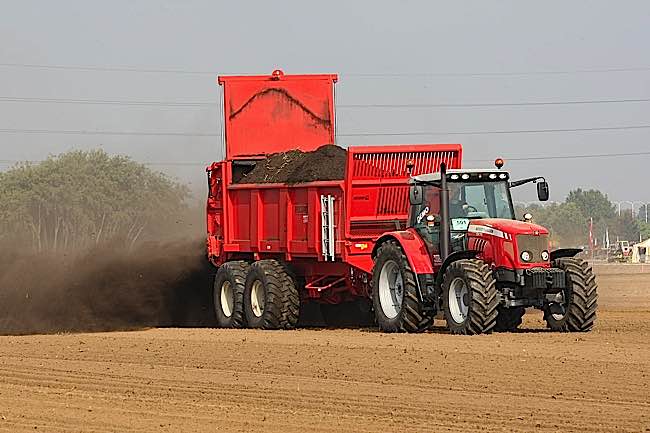
Factory
meat farming produces more methane and greenhouse gases than any other industry.
The root of “immorality” of meat eating lies in two premises, backed by science:
- that animals are sentient, suffer and feel emotions
- that the meat industry is unhealthy for our planet.

Happy
vegetarians.
If those are accepted, practicing Mahayana Buddhists should, according to many Buddhist teachers, include meat animals in vow “to free all sentient beings from suffering.” The greater threat — that of the world slowly eaten away by an environmentally dangerous meat industry —also can’t be ignored as explicit in that vow. Suffering is suffering. Sentience is sentience. And each person who becomes a vegetarian saves an average of 95 animals each year. [5]
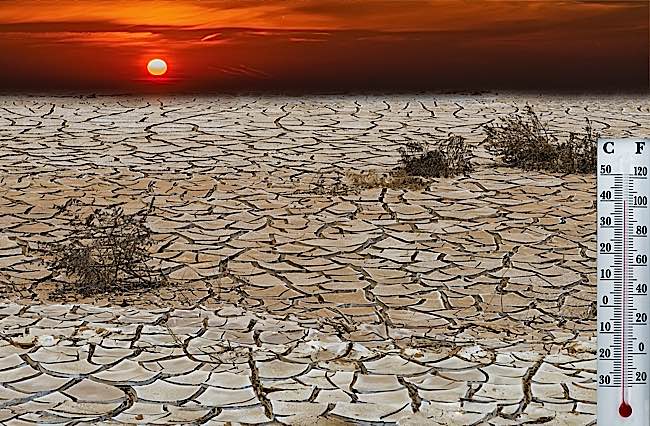
The environmental
consequences of excessive meat production will be felt even in the short term.
The 5 reasons to abstain or cut back on meat eating are simple:
1.
Danger
to he environment: the meat industry is one of the world’s greatest threats to
the environment in terms of pollution, land and resource consumption, and
global warming.
2.
Suffering:
Eating animals increases demand for slaughter (approximately 95 animals per
year per person), which creates the suffering of billions of sentient beings,
all of whom feel emotions.
3.
Scarcity
of food: Since meat animals require approximately 23 times more land than
equivalent plant crops, dedicating so much land, water and resources to meat
animals, makes it difficult to raise enough food for our current world
population
4.
Buddhist
teachings: Abstain from taking life, defined as any breathing animal, and
having compassion for any sentient being.
5.
Economy:
As land and resources dwindle, and population grows, meat will become
unaffordable, creating inequities around the world.
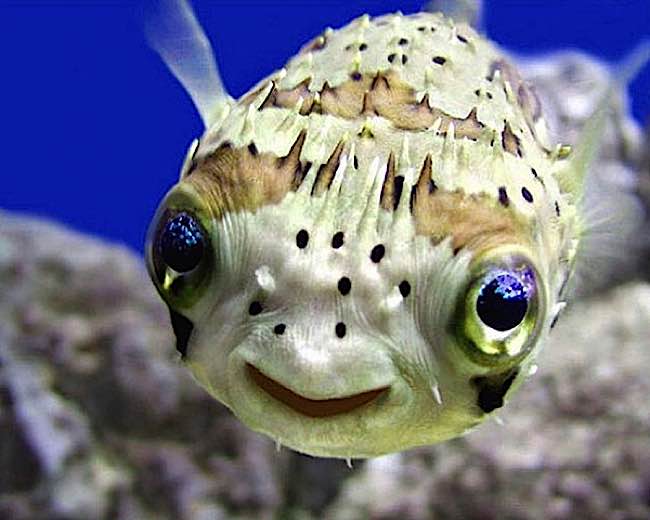
Even fish feel
emotions, according to scientists.
NOTES
[1] The Guardian: “Five Reasons Vegetarians Can Save the World.”
[2] Interview with Theodore Tsaousidis, Buddha Weekly
[3] “Dear Dalai Lama: Is it Permissible for Buddhists to eat meat?” Elephant Journal
[4] Sources of these quotes found in the Buddha Weekly feature, ” Prominent Scientists Declare “All Non Human Animals… Are Conscious Beings.” The Dalai Lama Protests Chicken Slaughter. An Orangutan Won Non-Human Rights Over Zoo Keeper. What Do the Teachers Say About Non-Human Compassion?”
[5] Animal Equality.
From Buddha Weekly
@ http://buddhaweekly.com/5-ways-vegetarianism-save-world-5-buddhists-teachings-teachers-recommending-vegetarian-lifestyle-5-reasons-ethical-thing/
For more information about vegetarianism see http://nexusilluminati.blogspot.com/search/label/vegetarianism
- Scroll down
through ‘Older Posts’ at the end of each section
Do you LIKE this uniquely informative site?
Hours of effort by a genuinely incapacitated invalid are
required every day to maintain, write, edit, research, illustrate, moderate and
publish this website from a tiny cabin in a remote forest.
Now that most people use ad blockers and view these posts
on phones and other mobile devices, sites like this earn an ever shrinking
pittance from advertising sponsorship. This site needs your help.
Like what you see? Please give anything you can -
Contribute any amount and receive at least one
New Illuminati eBook!
(You can use a card securely if you don’t use Paypal)
Please click below -
Spare Bitcoin
change?
And it costs nothing
to share this post on Social Media!
Dare to care and
share - YOU are our only advertisement!
For further enlightening
information enter a word or phrase into the random synchronistic search box @
the top left of http://nexusilluminati.blogspot.com
And see
New Illuminati – http://nexusilluminati.blogspot.com
New Illuminati on Facebook - https://www.facebook.com/the.new.illuminati
New Illuminati Youtube Channel - https://www.youtube.com/user/newilluminati/playlists
New Illuminati’s OWN Youtube Videos
-
New Illuminati on Google+ @ For
New Illuminati posts - https://plus.google.com/u/0/+RamAyana0/posts
New Illuminati on Twitter @ www.twitter.com/new_illuminati
New Illuminations –Art(icles) by
R. Ayana @ http://newilluminations.blogspot.com
The Her(m)etic Hermit - http://hermetic.blog.com
DISGRUNTLED SITE ADMINS PLEASE NOTE –
We provide
a live link to your original material on your site (and links via social
networking services) - which raises your ranking on search engines and helps
spread your info further!
This site
is published under Creative Commons (Attribution) CopyRIGHT (unless an
individual article or other item is declared otherwise by the copyright
holder). Reproduction for non-profit use is permitted & encouraged - if you
give attribution to the work & author and include all links in the original
(along with this or a similar notice).
Feel free
to make non-commercial hard (printed) or software copies or mirror sites - you
never know how long something will stay glued to the web – but remember
attribution!
If you
like what you see, please send a donation (no amount is too small or too large)
or leave a comment – and thanks for reading this far…
Live long
and prosper! Together we can create the best of all possible worlds…
From the New Illuminati – http://nexusilluminati.blogspot.com
I'm about 25% Lakota native American, and I know my ancestors would not have ben able to survive in the upper plains without the buffalo to eat. They used their furs and skins for warmth and shelter, they used every bit of the buffalo for survival they worshipped the buffalo as being a central part of their very existence....
ReplyDeleteYes, todays mass manufactured meat process is inhumane but again we have accepted a price system that deems profit over humanity and every other living thing, so these practices will continue until we get over the money myth that automatically tortures the entire living earth with cruel impersonalized indifference!
There are better ways of growing our food, but not here, under our current political belief structures that are set up to screw every living thing!
We accept what we BELIEVE and we believe we must act like barbarians in our socially accepted WAR based society of ignorant fools! And they call this civilization? LOL.... BS! (Buffalo Shit)!
The vanishingly small percentage of Earth's human residents who have been forced to live in deserts - arid or frozen - are obviously not the issue. Did you read the article? It would seem not. Eating corpses isn't good for you or the victim - and it's entirely unnecessary, therefore thoroughly cruel.
DeleteI have personally known people who were vegetarians and died of cancer.... A person many people around the world have known is the late Linda MCarthy, Paul's wife and former Wings member.... In fact most vegetarians I know are anemic, they eats lots of breads potatoes and pastas hence have higher cases of diabetes...
DeleteMany people don't realize that plants are also conscious and feeling beings with a rooted central nervous system, so this article is a bit hypocritical, don't you think?
Really it's value judgement, based on ignorance! Though I do agree that animals need to be respected and treated humanely, always....
All of us have. It's tediously simple for vegetarians to have diets almost as toxic as those of corpse eaters. Those who eat soy products are particularly susceptible to nasty early ends. Maybe some of those you know were contaminated by US nuclear tests, leaks or Roundup - for instance.
DeleteMost vegetarians we know are far healthier than the corpse eaters around them, and are far more aware of what's in their food. They also smell much better and are often more empathic and compassionate!
You're making value judgments, Illuminator. Personalized and or collective value judgments are the root cause of most every conflict under the sun. Again, life lives on life, whether that life is plant or animal. Both are important in the web of life, and to deem one more important than another is open for debate with no clear winner, the debate will just breed hatred for the oppositions easily repudiated opinion. Any debate about what is more or less ethical to eat always ends in hypocrisy, ALWAYS, for ALL IS CONSCIOUS and ALL IS AN INTRICATE PART OF EVERYTHING ELSE!
DeleteWe have no problem with having values - and ethics. Mass murderers find it easy to excuse their nasty habits, too. Their arguments, of course, are valueless. Killing animals for food when you don't have to is not only outdated and barbaric, it's the epitome of all things demonic. It's called 'inflicting unnecessary suffering on sentient beings' - beings who value life. Being aware and sentient, however, is not the same as being conscious - or having a conscience.
DeleteHealthier?.... I always like to say, eat right for your specific blood type.... What's your blood type, Illuminator?
ReplyDeleteType I - irrelevant. Or mayhap that's irreverent.
Delete